

Ask questions about your PagerDuty data
Connect PagerDuty to Filament and turn complex dashboards, analytics, and business intelligence into a simple conversation. No spreadsheets. No setup. Just instant answers.
PagerDuty tracks incidents and on-call schedules, but understanding how service reliability affects customer satisfaction or which incidents correlate with revenue impact requires connecting to your support, product, and business data. Filament links PagerDuty to your other tools and answers questions about incident patterns, team effectiveness, and business impact in plain English.
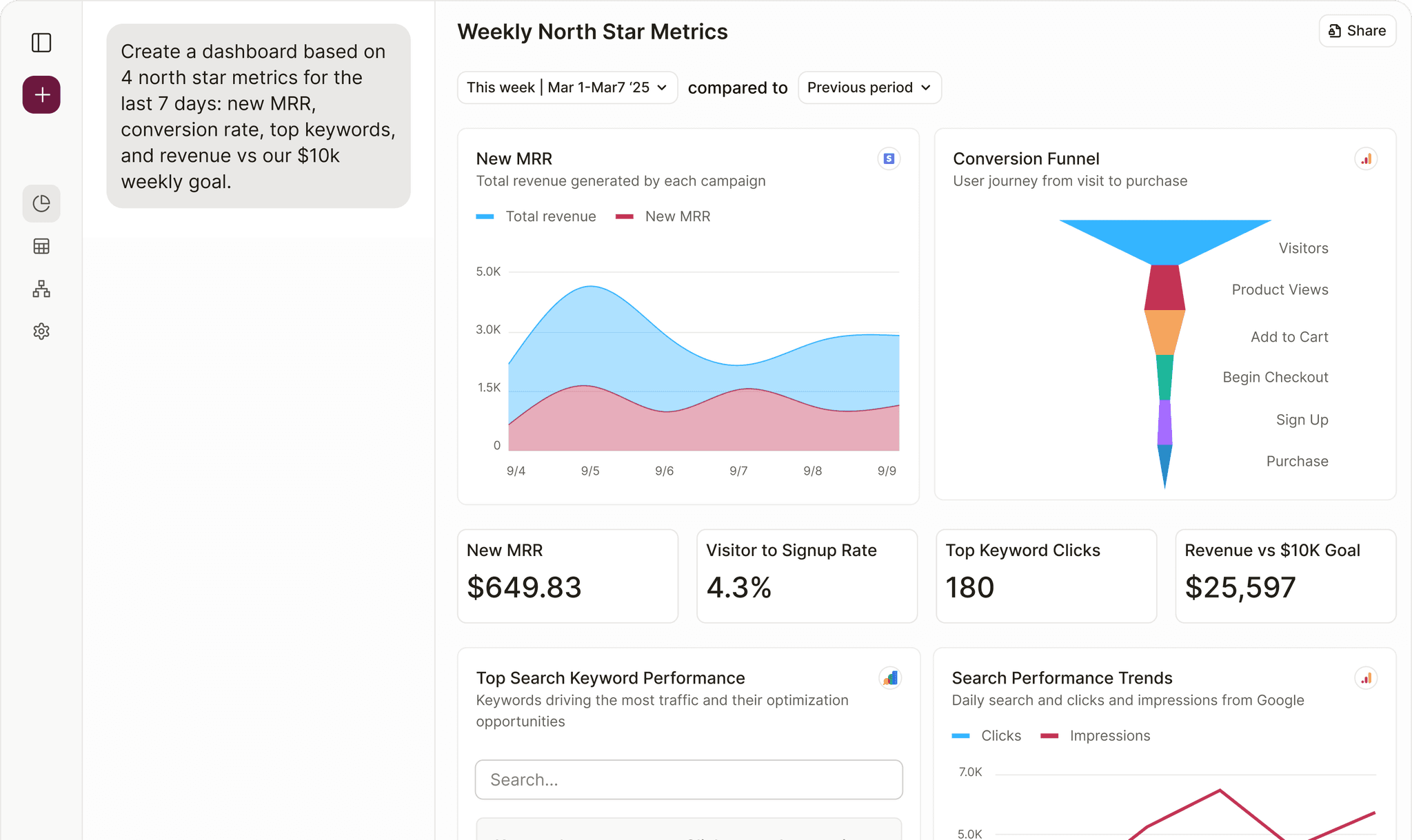
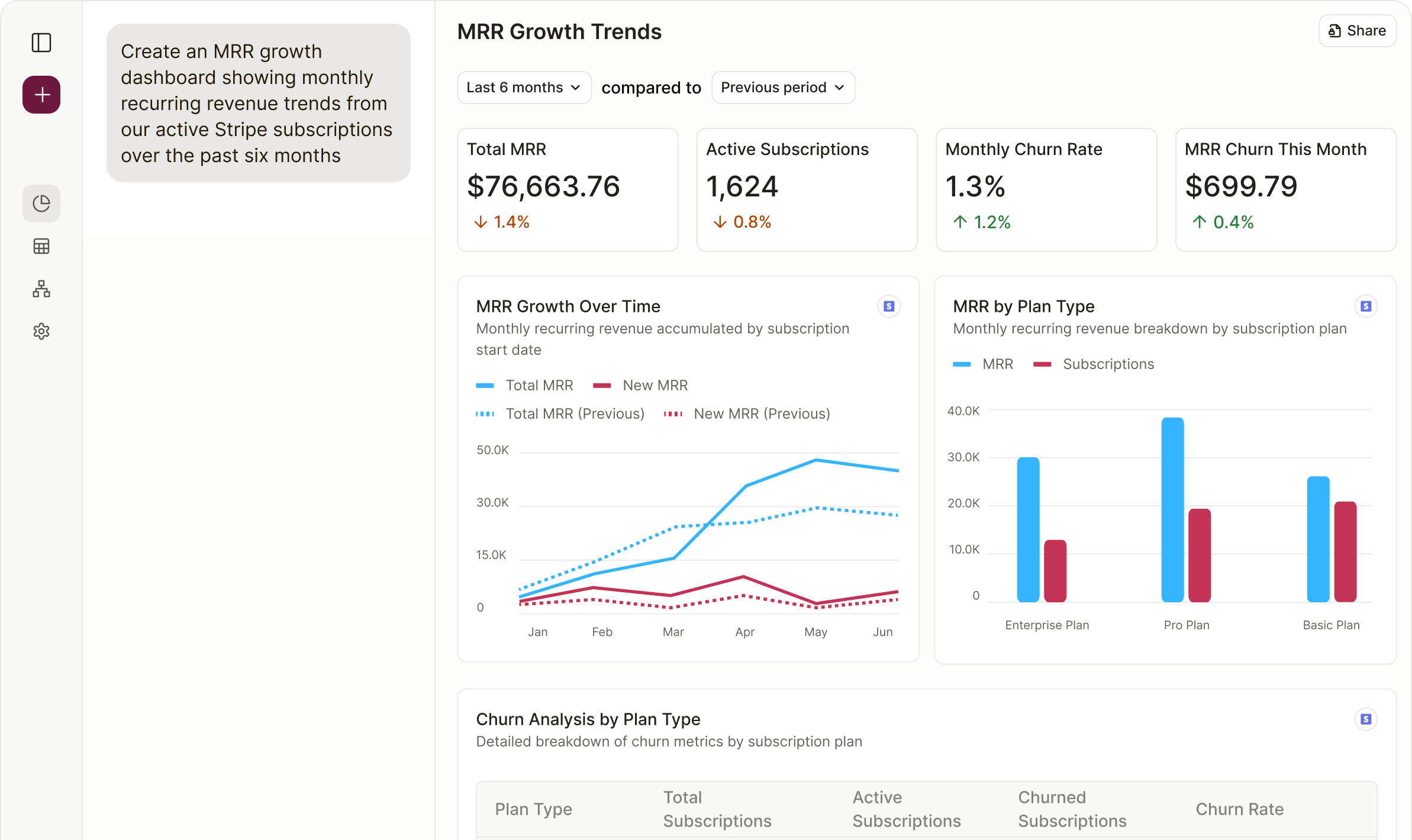
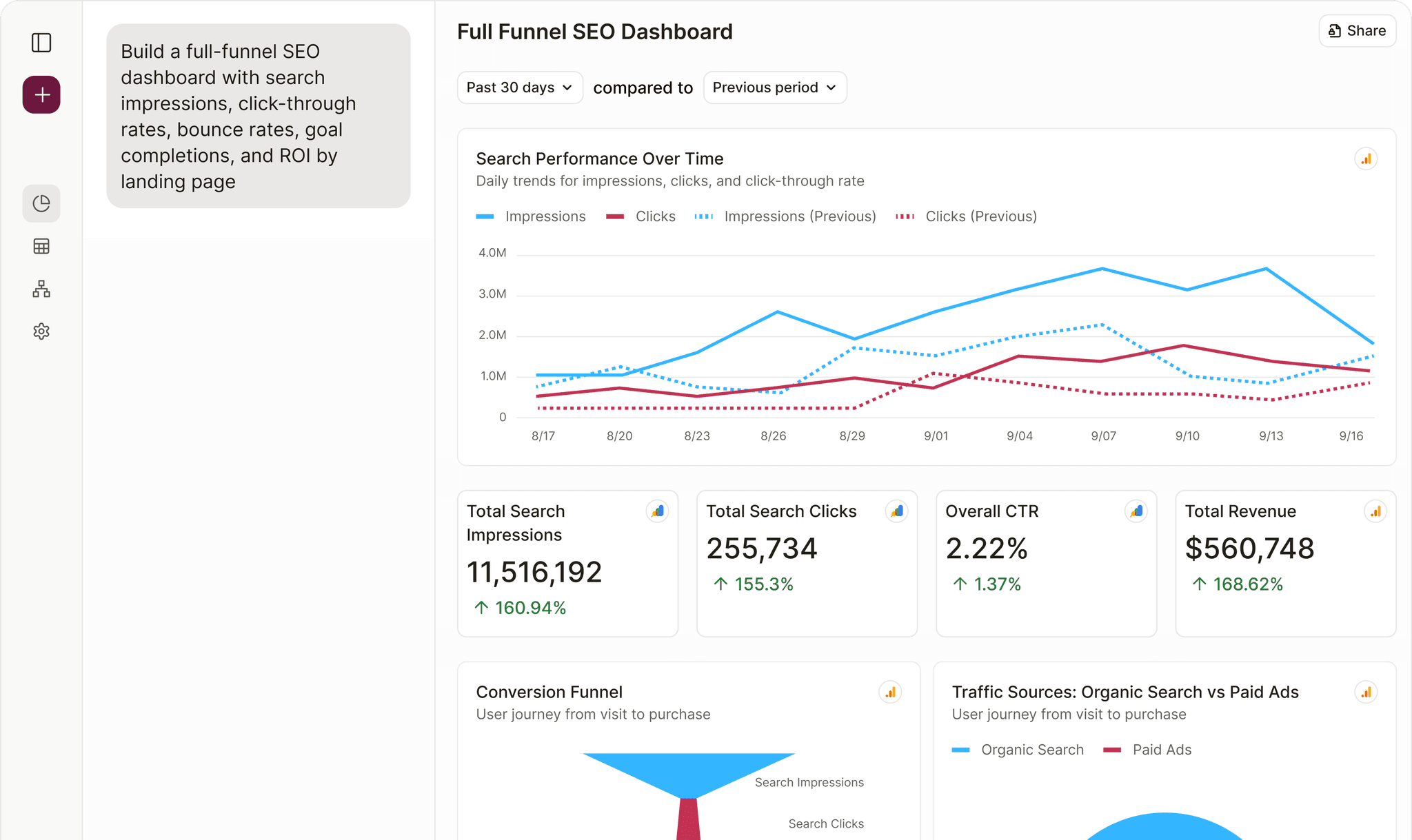
Track PagerDuty KPIs with Filament Analytics
Connect your PagerDuty account to Filament and instantly track your most important KPIs. All in plain English dashboards that update automatically.
View documentationKey PagerDuty metrics you can track in Filament:
Combine PagerDuty with other data sources
Your business runs on more than one app, and your analytics should too. With Filament, PagerDuty lives side-by-side with sales, finance, and customer tools. Bring it all together in one intelligent workspace and finally see the full picture.












































































Your PagerDuty data gets even more powerful when combined with other tools:
PagerDuty + Datadog
Connect PagerDuty incidents with Datadog monitoring metrics to see which infrastructure issues trigger the most alerts, how alert thresholds affect incident volumes, and which services have the highest correlation between metrics and actual incidents.
PagerDuty + Jira
Connect PagerDuty incidents with Jira issues to track how incidents become engineering work, measure time from incident resolution to permanent fix, and identify which services generate the most follow-up tickets. Build a kpi dashboard tracking incident-to-fix cycles.
PagerDuty + Zendesk Support
Connect PagerDuty incidents with Zendesk tickets to see how service outages affect support volumes, which incidents generate the most customer complaints, and how incident resolution times correlate with customer satisfaction scores.
Benefits of Filament's PagerDuty Integration
Ask in plain English
Start with a question like 'How did MRR trend last year?' and you'll get an instant dashboard from across your apps. No configuration, no code.
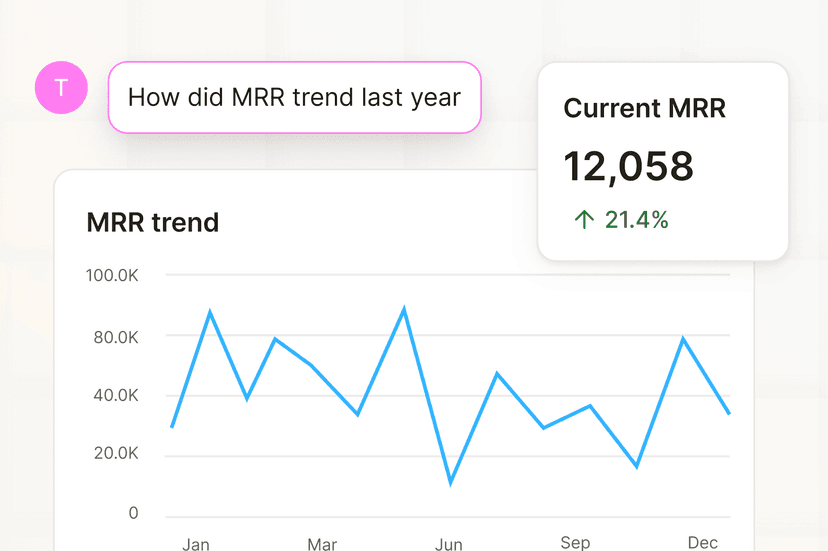
No setup
Filament is like Looker Studio or PowerBI, but it will set itself up. It understands your data, and automatically connects the dots.
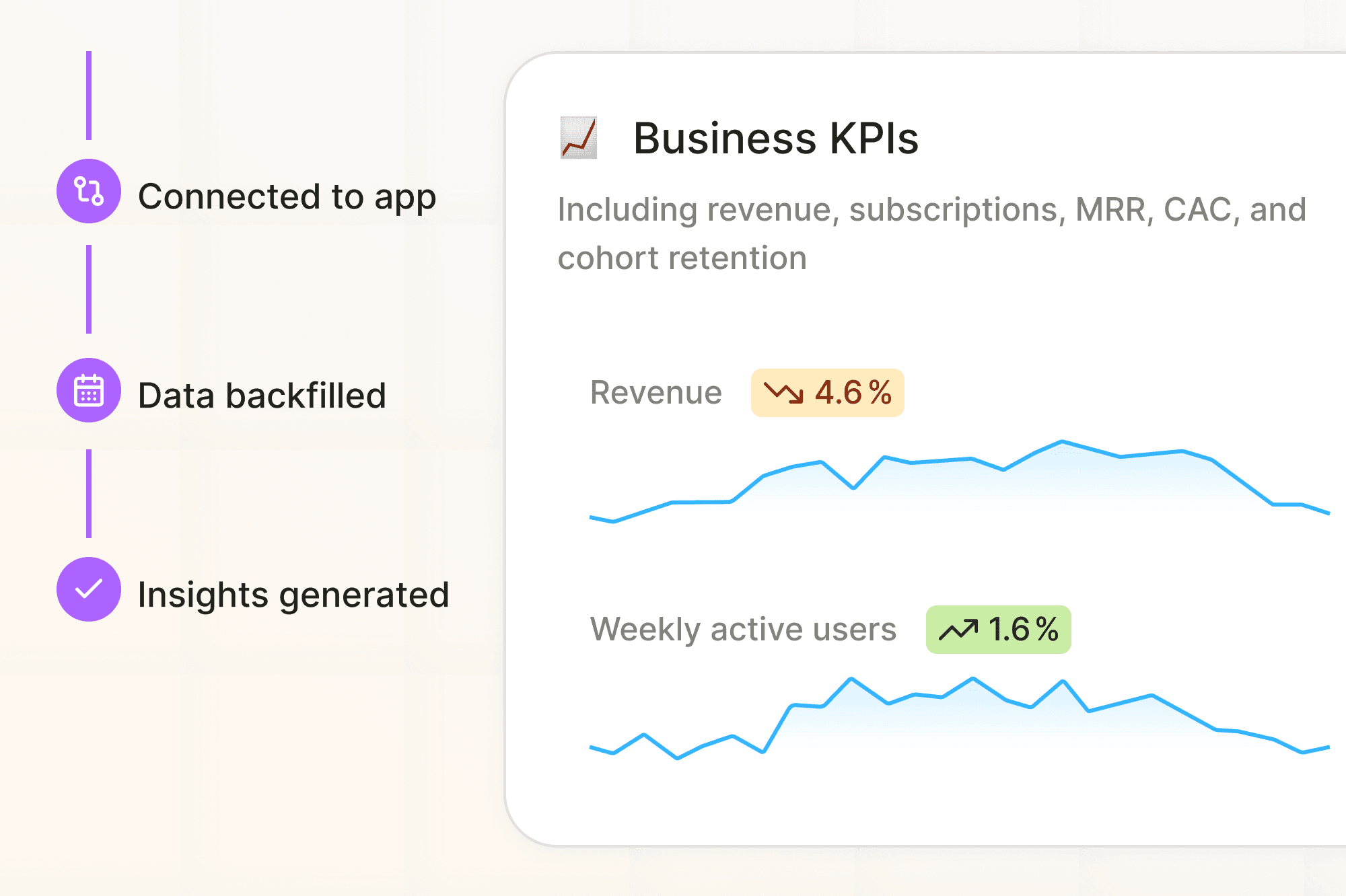
Gets smarter over time
Filament remembers your context and preferences, so you spend less time explaining and answers that align with your goals.
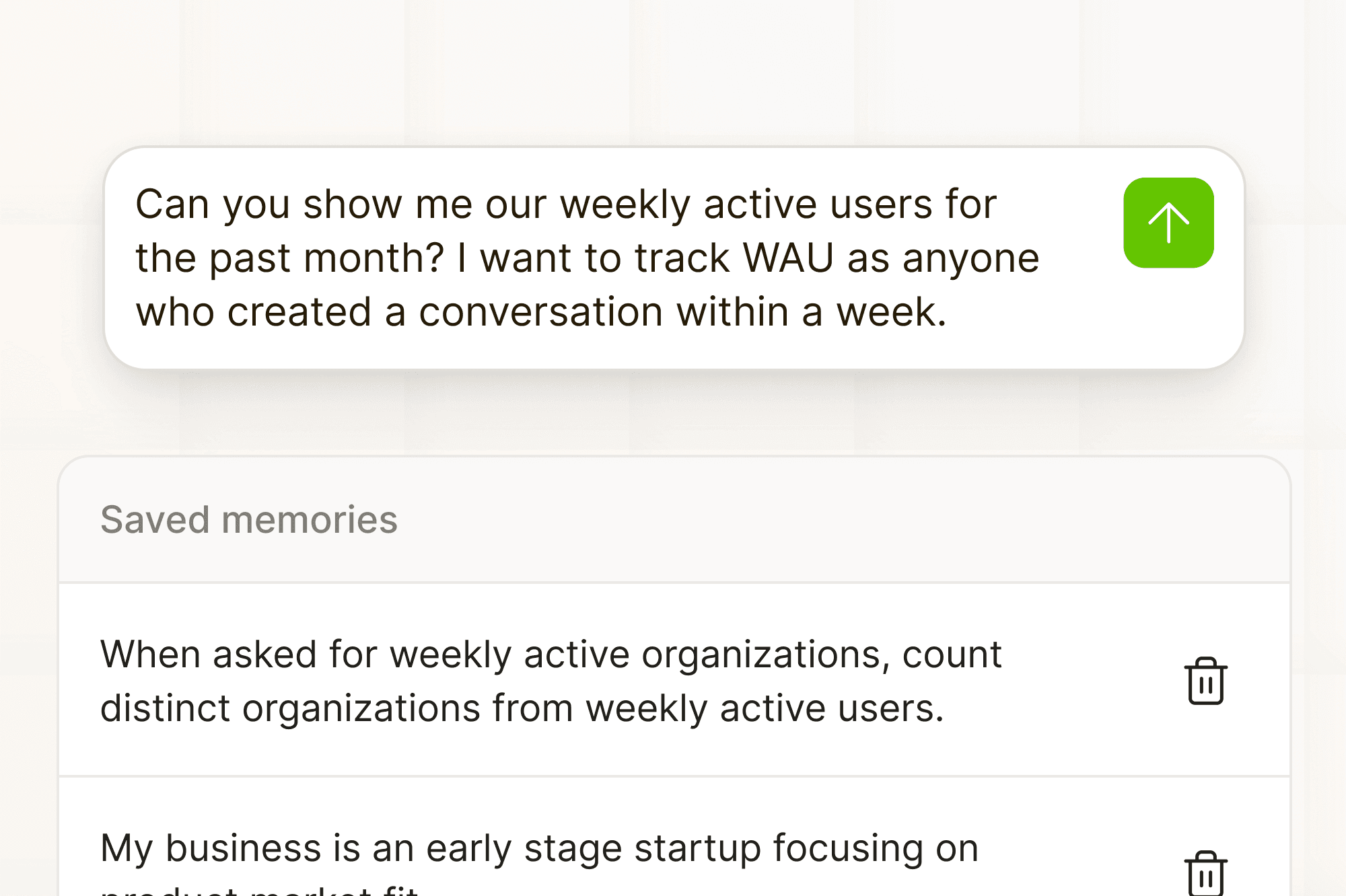
How it works
Step 1: Connect your PagerDuty account
Connect your PagerDuty account to Filament and get instant access to your data. No technical setup required.
Step 2: Ask questions about your PagerDuty data
Start asking questions like "Which campaigns drive the most qualified leads?"
Step 3: Build PagerDuty dashboards in minutes
Get tailored insights instantly and share them with your team.
Better business decisions with AI Analytics
How to get more from your data
Most teams only scratch the surface of what's possible with their data. Reports get buried in dashboards, exports pile up in spreadsheets, and critical insights never reach decision-makers. Filament changes that.
With Filament, your data is analyzed by an AI data analyst that understands plain English. Instead of struggling with complex BI tools or waiting for reports, you can instantly ask questions about revenue, marketing performance, customer engagement, or retention, and get clear answers in seconds.
Because Filament connects data across marketing, product, CRM, and finance systems, it helps you answer the bigger questions that traditional dashboards can't:
- Which campaigns and channels actually drive revenue growth?
- How does user engagement translate into pipeline or sales performance?
- Where are we losing efficiency between acquisition, retention, and finance?
By combining AI-powered reporting, conversational dashboards, and cross-platform integration, Filament helps you move beyond surface-level metrics and uncover the insights that drive smarter, faster business decisions.
Enterprise-grade security
Complete data isolation, data encryption at rest and in-transit, and secure, accredited cloud providers keep your organisation's data protected. We never use your data for AI training or share it with third parties.
Learn more about securityPagerDuty integration FAQ
Everything you need to know about connecting PagerDuty with Filament and getting the most out of your data.